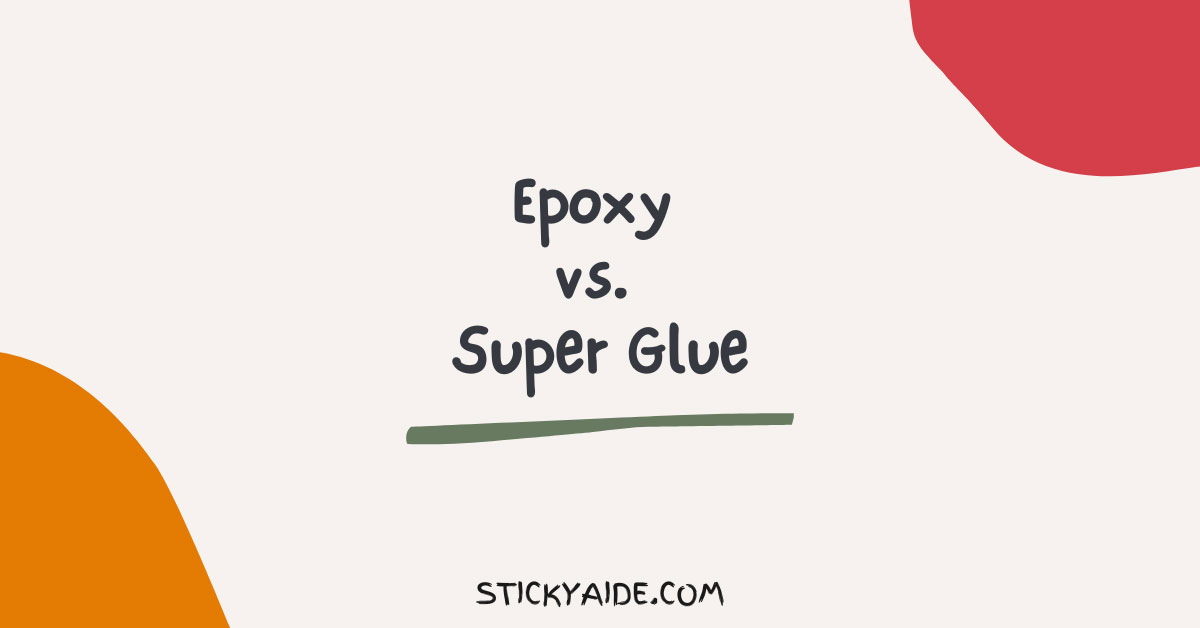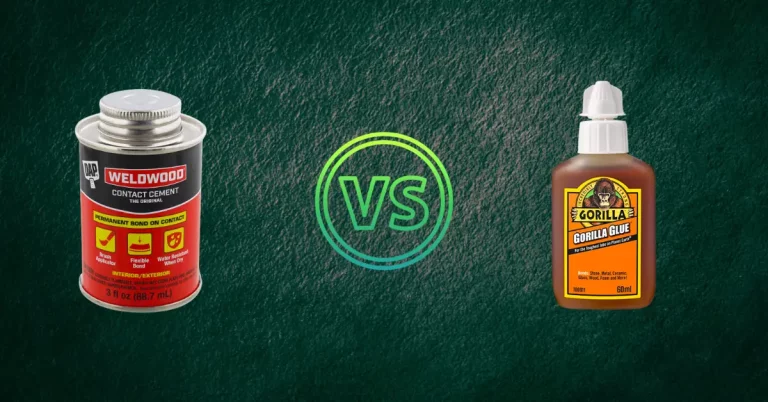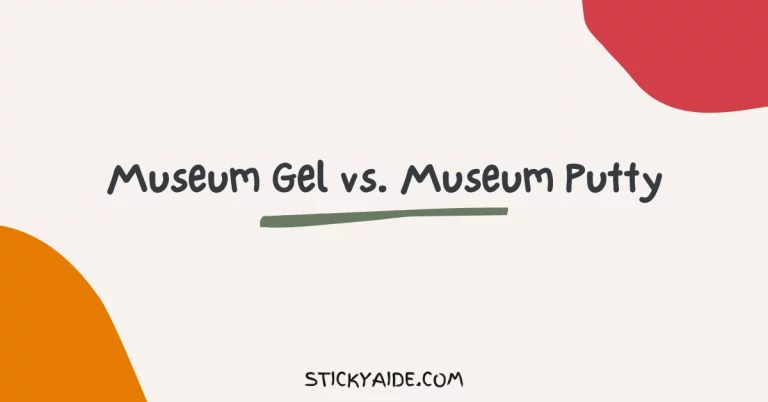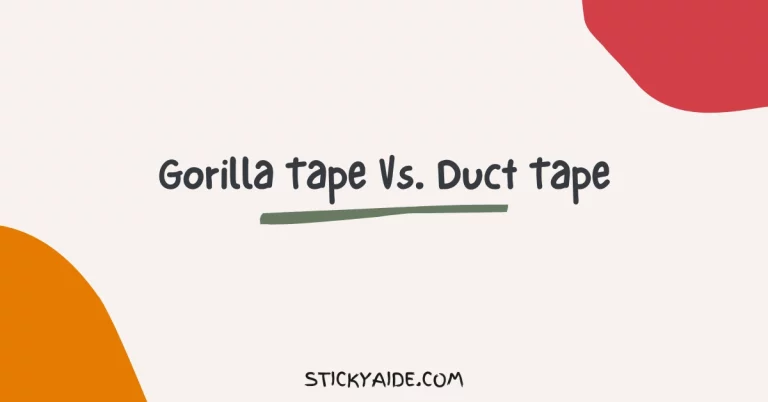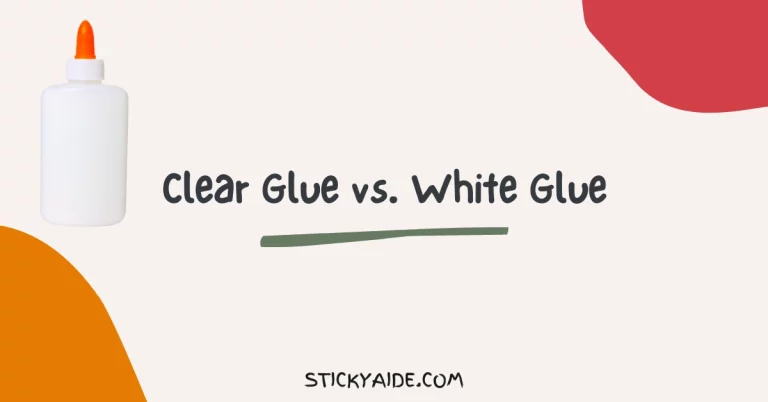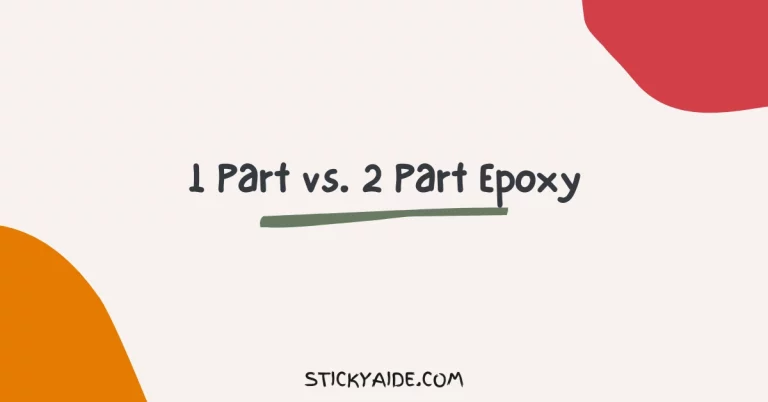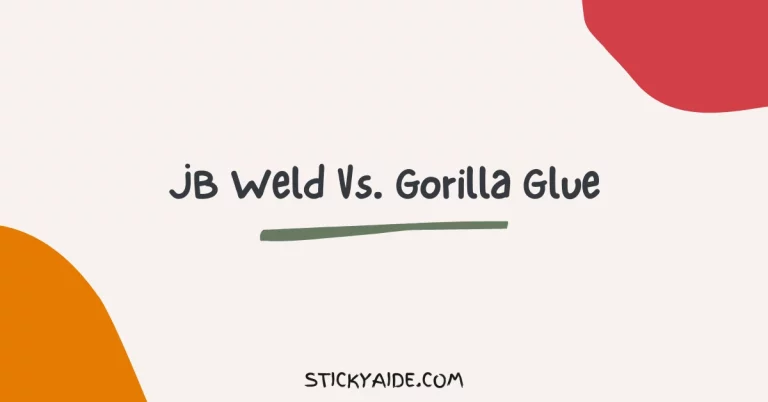Epoxy and super glue are strong glues that can help you bond just about any material together, but they have different advantages and disadvantages.
If you’re wondering which type of glue to use on your next project, read on to learn the difference between Epoxy and Superglue. You might be surprised by what you find!
Read More: Acrylic vs. Epoxy Adhesive
What is Epoxy?
Epoxy is a type of glue made from two parts that come together and set to form a solid solid. Unlike Superglue, epoxies take time to dry and are stronger as they age.
This can be advantageous if you’re working on a project with a deadline that needs to be met. Epoxies also tend to be more expensive and less user-friendly than other types of glue, like super glue, because they don’t adhere well to irregular surfaces.
Read More: Hot Glue Vs. Super Glue
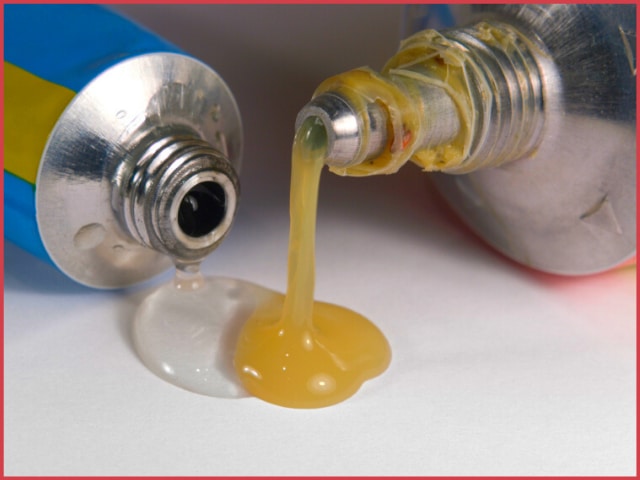
What is Super Glue?
Super glue is also called adhesive cyanoacrylate. It creates an instant bond and is applied by squeezing out a small bead that you apply to two surfaces that need to be joined together.
The two surfaces will instantly adhere together without any clamping or clamps. The chemical reaction between the adhesive and moisture on both surfaces causes this process.
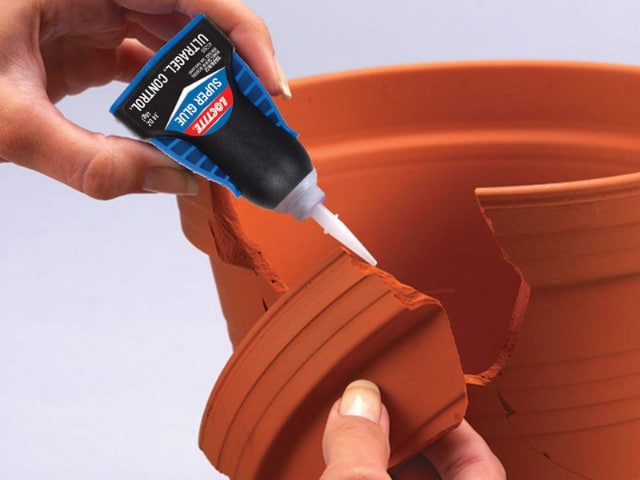
Read More: Methacrylate Adhesive vs. Epoxy
Epoxy vs. Super Glue
What’s the difference between Epoxy and Super glue?
While Epoxy and super glue are adhesives, there are some key differences.
1. Epoxy is a two-part adhesive made from resin and hardener that cures with exposure to air or moisture. At the same time, super glue is typically a single-part adhesive that can be brittle in extreme temperatures.
2. Epoxy is more expensive than super glue, but it lasts longer and creates stronger bonds due to its chemical makeup.
3. The curing time of Epoxy also allows for more precision during the bonding process. If you’re looking for an instant bond, go with super glue.
But if you want something that will last and give you added peace of mind, choose Epoxy. We recommend using Epoxy because it will last longer and create stronger bonds.
4. Unlike Epoxy, which needs 24 hours to cure, super glue will set within seconds.
Read More: Arrow Insert Glue vs. Super Glue
Properties of Epoxy and Superglue
So, how does Epoxy work as a sealant compared to super glue? These two substances aren’t necessarily made for the same thing but have their respective strengths and weaknesses. The differences are summarized below:
Ease of use: Super glue is considered the easiest product because it doesn’t require mixing with another material and can be applied with just one hand. Epoxy also requires mixing with hardener, making the application more difficult.
Cost: Super glue tends to cost less than Epoxy because you get more out of each tube for a lower price. Epoxy prices will depend on the type you buy and where you purchase it from.
Drying time: Once an area is covered in either super glue or Epoxy, they take different amounts of time to dry based on thickness and humidity levels.
For example, Epoxy takes longer to dry if it’s thick and humid outside. In addition, because the drying process is slower with Epoxy, there’s a higher risk that you’ll end up ruining your project by spilling anything overtop of the substance during this stage.
Super glue dries much faster, making it easier to handle at this point. To summarize, we can say that Epoxy has some clear advantages regarding durability and longevity.
But when you need something done quickly and need something stronger than standard adhesives, Superglue would be the better choice.
Read More: Gorilla Glue Vs. Epoxy
Epoxy vs. Super Glue For Metal
Epoxy is a 2-part liquid that cures when it dries. It’s strong and durable because it creates an adhesive bond between two objects, which cannot be easily undone without a solvent.
Epoxy is typically better at joining metal than super glue. Still, if you want a permanent solution, Epoxy may not be what you’re looking for since once it dries, it becomes difficult to remove without harsh chemicals.
Epoxy or Super Glue For Ceramic
Epoxy adhesive can be used on non-porous surfaces like glass and ceramic or for jewelry repair.
Epoxy or Super Glue for glass
Super glue can be the best option for glass if the glass is small and not too deep. Epoxy usually works better on larger, deeper surfaces.
Is Superglue better than Epoxy?
It depends. For some projects, super glue can be a good option, and Epoxy can be a better option for some projects.
Superglues (cyanoacrylates) are formulated with a fast-curing resin and curing accelerator that form an exceptionally strong bond when mixed. The super glue is spread onto two surfaces and then held until it cures.
After mixing, this glue can be stored for up to five years. It will set in less than a minute, so you don’t need to hold the pieces together for any length of time. To make sure it sticks securely, let the glue dry for about 30 minutes before putting any pressure on it.
While this glue is quick to use and makes repairing objects easy, many people find Epoxy better because they’re more durable. They have higher shear strength, meaning they’re less likely to break if there’s too much pressure on them.
Should I use Epoxy or Superglue for plastics?
Epoxy and superglue are useful but have their own purposes. Which one you should use depends on what you’re gluing together, whether or not you want to make something waterproof, how strong you need the bond to be, etc.
Epoxy is perfect for allaround fixing things because it offers a quick dry time and creates a waterproof seal. It’s also good for dealing with anything that needs good adhesion strength, including metal.
For example, putting two pieces of glass in a window frame will hold them together without leaving any gaps, as some other glues would. You can buy Epoxy in hardware stores and even some supermarkets!
Superglue isn’t as versatile as Epoxy; it only does well with certain materials (like plastics). It will form an instant bond when put together–but it doesn’t work for everything!
Is Superglue an Epoxy Resin?
Super glue is not an epoxy resin. It’s a fast-acting adhesive that bonds to almost any surface quickly, but it doesn’t have the strength of epoxy resin and won’t hold up in extreme temperatures like epoxy can.
You’ll need both if you want to create a durable bond, but they don’t have the same properties and will work differently depending on your project’s needs.
Is Gorilla glue stronger than Epoxy?
Epoxy is stronger than Gorilla Glue. The between these two types of glue is how they cure. Super glue cures in three seconds, and Epoxy takes 24 hours to cure, but both of them do a great job sticking things together. The other difference is that Epoxy is water-resistant whereas Superglue is not.
How long does Epoxy glue last?
One of the main differences between Epoxy and super glue is how long each type will last. Epoxies, being more resilient, can last a lifetime. This is because epoxies are made from two or more components that chemically react to create a sealant of high strength.
On average, epoxies can survive up to 100 years. In contrast, superglue typically lasts anywhere from one to six months before drying out or becoming brittle and prone to breaking down.
Read More: Construction Adhesive vs. Epoxy
Can you mix Epoxy and Superglue?
Mixing Epoxy and super glue is one way of creating a stronger seal between two objects. You can mix them in different ratios depending on what kind of bond you need.
There are mixed opinions about whether it’s a good idea to combine them, but most people say that doing so creates a more durable connection than just using Epoxy or super glue alone.
The two glues might not always adhere properly, though, which may be why some people don’t recommend combining them.
Why is Epoxy Adhesive stronger than Superglue?
Superglue is a popular adhesive you might reach for when making quick fixes around the house. When tested, it had a hard time lasting in extreme hot and cold temperatures, so Epoxy was developed to be an all-purpose adhesive that does well in many situations.
It’s made of two materials, a resin, and a hardener. The resin is sticky, but it becomes elastic and tough when combined with the hardener.
To use Epoxy as an adhesive, mix equal parts of both materials until they are thoroughly combined, then apply to your desired location while wearing gloves to prevent contact with your skin.
Once it dries, you should have a strong bond that can withstand almost anything life throws.
Read More: Epoxy Resin vs. Adhesive
Last Opinion
Although Epoxy is more expensive and more difficult to work with, it has many benefits that make it worth it in certain situations.
If you are working on a sensitive or very large project and need your bond to be stronger than any other bond, Epoxy is the way to go. Super glue will work for you if your project is smaller and time-sensitive.
Overall, both have their positives and negatives but in different situations depending on what you need at that moment.

